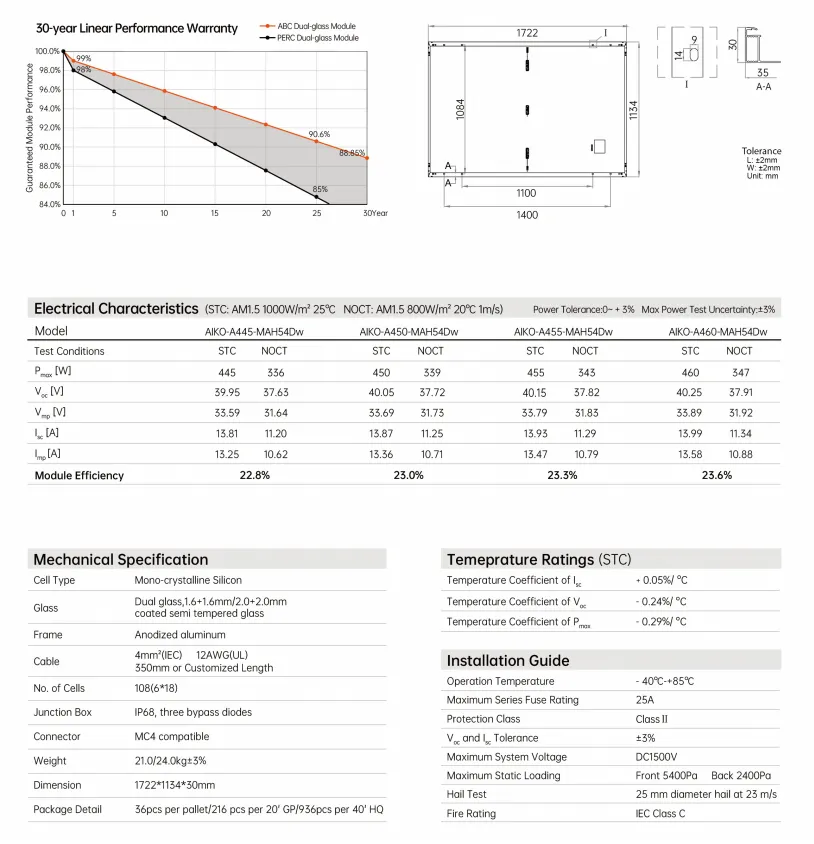24v solar panel
Understanding 24V Solar Panels A Sustainable Choice for Your Energy Needs
As the world increasingly shifts towards renewable energy sources, solar power has emerged as a leading alternative. Among various solar options available on the market, 24V solar panels have gained significant attention due to their efficiency and versatility. This article will explore the benefits, applications, and considerations associated with 24V solar panels, making it an excellent choice for both residential and commercial use.
What Are 24V Solar Panels?
24V solar panels are designed to operate at a nominal voltage of 24 volts. This is achieved by connecting several solar cells in series, providing a consistent and efficient output for various applications. These panels are typically used in conjunction with a solar charge controller and a battery storage system to ensure that the generated energy is effectively stored and utilized.
Benefits of 24V Solar Panels
One of the primary advantages of 24V solar panels is their ability to produce more power than their 12V counterparts. This makes them particularly suitable for larger applications, such as powering homes, cottages, and recreational vehicles (RVs). With increased power output, these panels can efficiently run appliances, lights, and other electrical devices, making them a practical choice for energy independence.
Another significant benefit is the increased efficiency in transmission. Higher voltage systems, like the 24V, reduce the current flowing through the wires. Lower current means reduced energy loss due to resistance, allowing for better performance over longer distances. This quality makes 24V solar panels ideal for off-grid systems where power distribution spans a considerable distance.
Applications of 24V Solar Panels
24v solar panel

24V solar panels have a wide array of applications, making them suitable for different energy needs. One of the most common uses is in off-grid solar systems, which are particularly popular in remote areas where access to the traditional electricity grid is limited. These systems can power homes, cabins, and tiny houses, providing essential energy for lighting, refrigeration, and other daily needs.
In addition to residential applications, 24V solar panels are commonly used in commercial enterprises, especially in sectors such as agriculture and telecommunications. They provide reliable power for irrigation systems, remote monitoring equipment, and off-grid communication towers. Furthermore, they are also utilized in marine applications, where boats and yachts benefit from a renewable energy source.
Considerations When Choosing 24V Solar Panels
While 24V solar panels offer numerous advantages, there are a few considerations to keep in mind. First, it is essential to assess your energy needs accurately. Ensure that the panel's output aligns with your consumption patterns and that you select an appropriate battery system to store excess energy for use during non-sunny periods.
Additionally, installation can be more complex compared to lower voltage systems. It is advisable to consult with a professional installer who has experience with 24V systems to ensure proper setup and maximize efficiency.
Conclusion
In summary, 24V solar panels are an excellent choice for those looking to harness solar energy efficiently and sustainably. Their higher power output, reduced energy loss during transmission, and versatile applications make them a worthwhile investment for both residential and commercial users. As technology continues to advance, the allure of solar power, specifically 24V systems, will undoubtedly grow, contributing to a greener, more energy-independent future.
-
String Solar Inverter: The High-Efficiency Solution for Smart Solar EnergyNewsJul.14,2025
-
Revolutionizing Rooftop Energy with the Power of the Micro Solar InverterNewsJul.14,2025
-
Power Independence with Smart Off Grid Solar Inverter SolutionsNewsJul.14,2025
-
On Grid Solar Inverter: Powering the Future with Smart Grid IntegrationNewsJul.14,2025
-
Monocrystalline Solar Panels: High-Efficiency Power for the Future of Clean EnergyNewsJul.14,2025
-
Bifacial Solar Panel: A Smarter Investment for Next-Generation Energy SystemsNewsJul.14,2025







